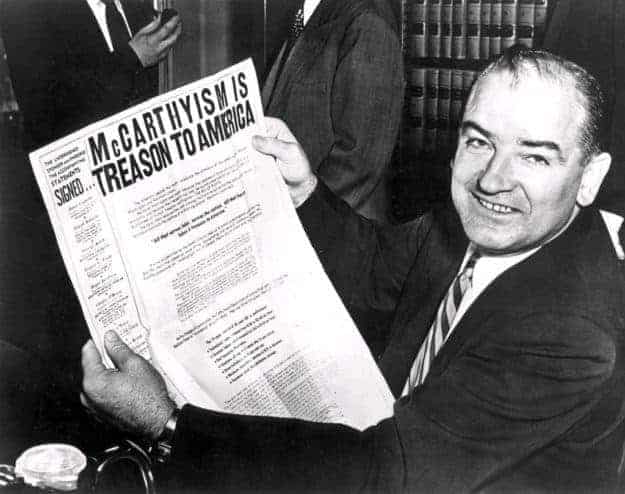The 1950s were a time of many booms (baby booms, real-estate booms, economic booms), but they were also a time of scandal. While it felt like a great time to be alive for many Americans, politics and world events were rife with conflict. We take a look back at some of the greatest scandals that rocked the decade and helped shape post-war America.

1. The Near-Collapse of The IRS
As a result of an investigation into IRS misconduct in the 1950s, more than 125 IRS officers were laid off and the giant government organization almost got dismantled. Several things launched Congress to re-organize the mammoth tax-collection organization. Just two examples included that officials in San Francisco were doing business with criminals, and the head tax collector in St. Louis represented a client in a tax matter against the bureau, while still holding office in the bureau.
In the 1950s and even into the 1960s, the IRS cooperated with the FBI and often audited civil rights leaders, members of the NAACP, and the American Communist Party. Additional presidents years later have also been accused of conducting unfair audits.
President Truman most publicly took the fall for the corruption and was instrumental in the IRS firings and re-organization of the group. To this day, many election cycles see the familiar pattern of distrust of the IRS that has its roots in the 1950s.

